< Back
How To Develop a List of Scholarly Sources for Literature Reviews
Declan Gessel
Oct 5, 2024
You’re writing an essay that requires scholarly sources. You need credible information from academic journals, books, and databases, but you feel overwhelmed. What is the difference between academic sources? How do you find sources for essay AI? What do you do with the information once you’ve seen it? This blog will ease your concerns and teach you how to develop a list of scholarly sources for your essay. You’ll learn about the different types of academic sources, how to find them, and why they matter.
You may also want to check out Jotbot’s source finder, a handy tool that helps you develop a list of credible sources for your paper. It can help you quickly find scholarly sources relevant to your topic and create a list (or annotated) for your writing.
Table Of Contents
What Constitutes a Scholarly Source?

Scholarly sources include materials published in academic journals, academic books, theses, dissertations, and reports from reputable organizations. These works are typically peer-reviewed, meaning they have been evaluated by experts in the field for their quality and credibility before publication.
Key characteristics of scholarly sources include Authorship: They are written by experts, researchers, or scholars with advanced degrees in the relevant field. Citations: They contain extensive references to other scholarly works, showcasing their connections within the academic community. Methodological Rigor: Scholarly articles often detail the research methodology used, allowing others to evaluate the validity of the findings.
Why It Matters
Utilizing scholarly sources is crucial for maintaining the integrity of your literature review. These sources provide depth and rigor, ensuring the information is credible and reliable. Citing well-researched and peer-reviewed materials supports your arguments and builds trust with your audience.
Benefits of Using Scholarly Sources in Literature Reviews
Depth and Authority
Scholarly sources offer detailed analyses and in-depth discussions that enrich your understanding of a topic. They provide insights based on rigorous research, which helps to create a well-rounded perspective in your literature review. For example, an article in a peer-reviewed journal may present original research findings that challenge existing theories, prompting a reevaluation of previously accepted notions within a field.
Contribution to Academic Discourse
By engaging with scholarly works, researchers contribute to the ongoing academic dialogue in their field. This engagement reinforces the existing body of knowledge and identifies gaps or areas needing further exploration. Citing scholarly sources shows that you are building upon a foundation of established knowledge, which is vital for advancing discussions in your study area.
Enhancing Credibility
Scholarly sources enhance the credibility of your work, making it more likely to be accepted and respected within academic circles. Research well-supported by authoritative sources is more persuasive and reliable, which can positively influence the reception of your findings. For instance, a literature review that cites scholarly articles will be viewed as more credible than one relying on blog posts or popular media.
How to Identify Scholarly Sources
Look for Peer Review
Check if the source has undergone a peer-review process. Many academic journals indicate whether they are peer-reviewed, which adds to the work's credibility. Online databases like JSTOR or PubMed allow users to filter search results to include only peer-reviewed articles.
Examine Author Credentials
Investigate the authors' qualifications and affiliations. Look for information about their educational background, academic positions, and previous publications. Authors with established credentials in their field are more likely to provide reliable information. Consider using tools like Google Scholar to find out more about the author’s previous work and citation impact.
Check Publication Venue
Ensure the source is published in a recognized academic journal or by a reputable scholarly publisher. Established journals typically have a rigorous review process and are known for their academic integrity. Use resources like the Directory of Open Access Journals (DOAJ) to find reputable journals in your field.
Evaluate Citations and References
Scholarly sources often include comprehensive reference lists, which can indicate the depth of research. A source that cites other reputable works demonstrates its engagement with the broader academic discourse. Assess the references used within the source to ensure they are credible and relevant.
Related Reading
• How To Find Good Sources
• Using AI For Research
• Citing ChatGPT
• How To Find Academic Sources
• How To Cite AI In MLA
• AI For Research Paper Writing
• Essay Sources
• AI In Academic Writing
• Most Reliable Sources For Research
• How To Get ChatGPT To Cite Sources
Criteria for Selecting Scholarly Sources

Get Your Citation Style Right
When looking for reliable scholarly sources, pay close attention to their citations. Trustworthy academic publications will adhere to established citation styles like APA, MLA, Chicago, or Harvard. These styles help writers organize their research and give credit to the proper sources. This ensures that academic writing is credible and rooted in verifiable research.
A source that reliably uses proper citations reinforces the information presented and helps readers trace back the research. Additionally, supporting multiple citation styles ensures versatility for researchers writing for various academic disciplines or publications.
Source Diversity and Quality Matter
If you want to write a credible literature review, you must avoid sources lacking academic rigor. Instead, focus on materials from a wide range of reputable scholarly materials with diverse, authoritative contributors. Reliable sources enhance the authenticity of your work, as they are backed by credible research and expert analysis. This diversity also minimizes bias, ensuring that your review encompasses multiple perspectives.
Look for User-Friendly Sources
Before you commit to a source, take the time to evaluate its ease of use. Scholarly articles should be easy to read, with a clear structure that includes an abstract, introduction, methodology, results, and discussion. This clear and organized layout aids in quick comprehension and analysis of the material, allowing you to extract relevant information efficiently.
Additionally, consider whether the source can be easily integrated with citation management tools and writing software (e.g., Google Docs, Microsoft Word). Seamless integration with writing platforms enhances your workflow, enabling you to compile citations and references without additional effort, thus saving time during the writing process.
Choose Sources That Work Quickly
Efficiency is essential when conducting research, especially when facing a tight deadline. Assess how quickly the source can provide the necessary information, particularly when reviewing extensive literature. Look for journals and publications that allow for quick searches and retrieval of relevant articles. Reliable sources should also offer bulk access to citations or content to facilitate larger projects and research needs.
Seek Out Sources with Additional Features
Not all scholarly sources are created equal. Some offer more than just basic information. Features like comprehensive bibliographies, supplementary data, and interactive tools (e.g., data visualizations) can enrich your research. Some platforms may also provide related articles, citation suggestions, or tools for creating annotated bibliographies.
Additional features can significantly enhance your research experience, providing valuable insights and tools that facilitate a deeper understanding of the topic. These capabilities can streamline the writing process, allowing you to manage various aspects of your literature review from one source.
Customer Support and Documentation Are Key
Ensure the source or publication provides robust customer support, including access to FAQs, tutorials, and direct support options (e.g., chat or email). Comprehensive documentation should be available to assist in understanding the source's features and resolving potential issues.
Strong customer support can be invaluable, especially when encountering challenges or navigating complex features. Having readily available resources ensures you can utilize the source effectively and maximize its benefits.
Write more smarter, not harder, with Jotbot's AI writing assistant. Start finding sources that are accessible with Jotbot's source finder today. Sign in with Google and get started in seconds.
List of 15 Scholarly Sources for Literature Reviews

1. Journal of Educational Psychology: Explore the Psychology of Learning
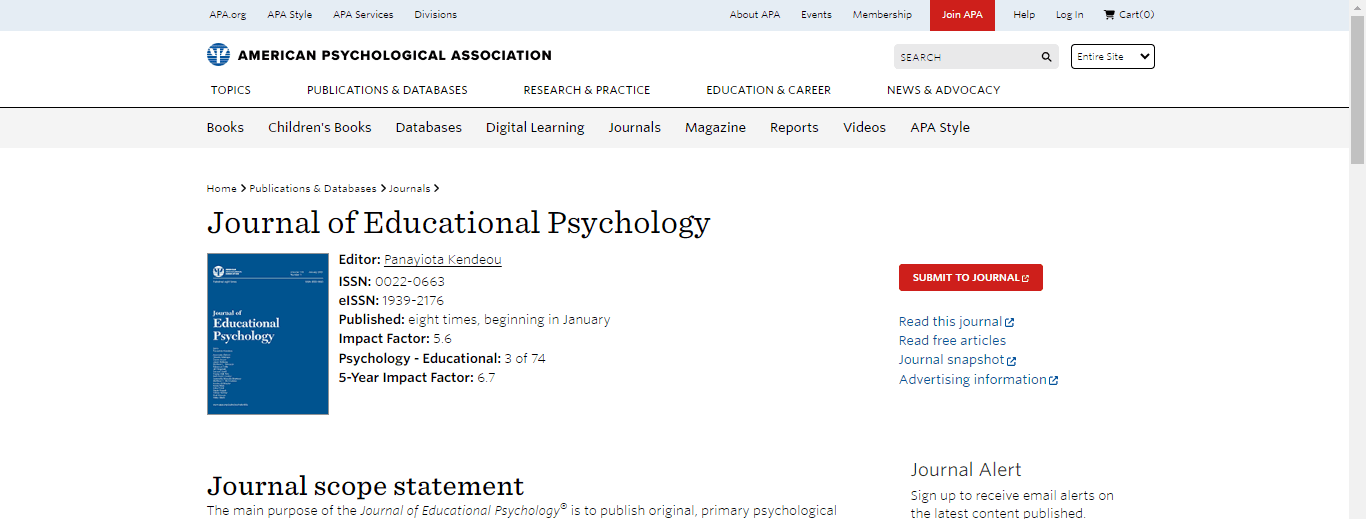
The Journal of Educational Psychology is a peer-reviewed academic journal by the American Psychological Association. It focuses on the psychological aspects of education, exploring how psychological theories and research can inform teaching and learning practices. The journal publishes original research on various topics, including educational methodologies, learning processes, and psychological factors affecting student performance. It is ideal for researchers interested in the intersection of psychology and education.
2. American Journal of Sociology: Uncover the Social Forces Behind Learning
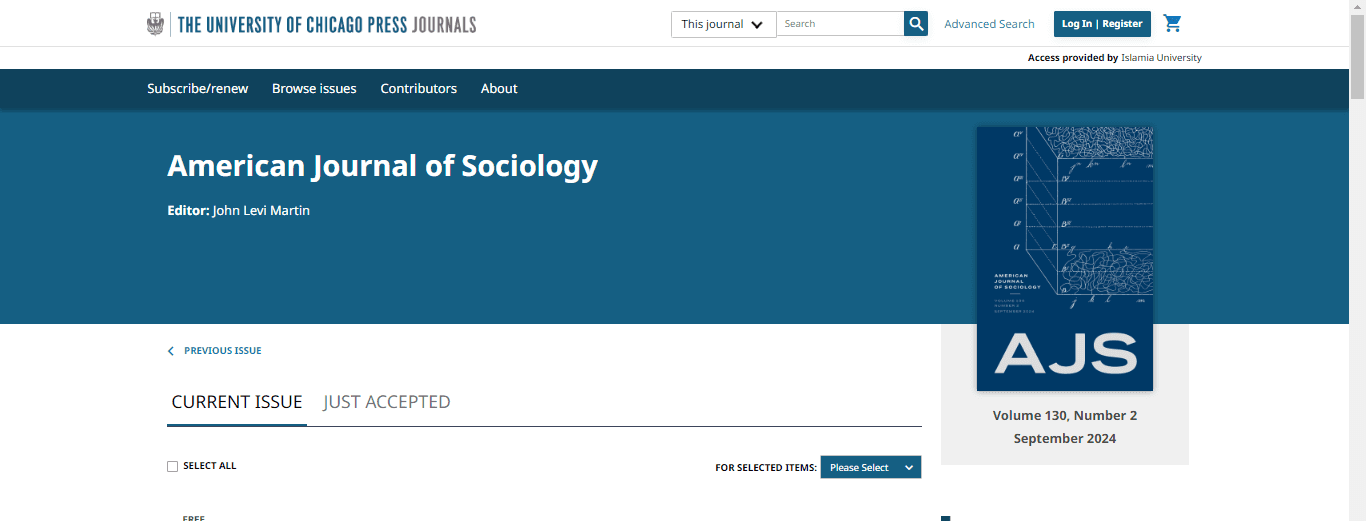
The American Journal of Sociology is one of the leading sociological journals in the world. Published by the University of Chicago Press, it focuses on original research articles covering various sociological topics, theories, and methodologies. This journal is essential for those studying social structures, behaviors, and issues related to society. It offers empirical research and theoretical discussions that help uncover the social forces behind learning and education.
3. The Lancet: Examine the Impact of Health on Education
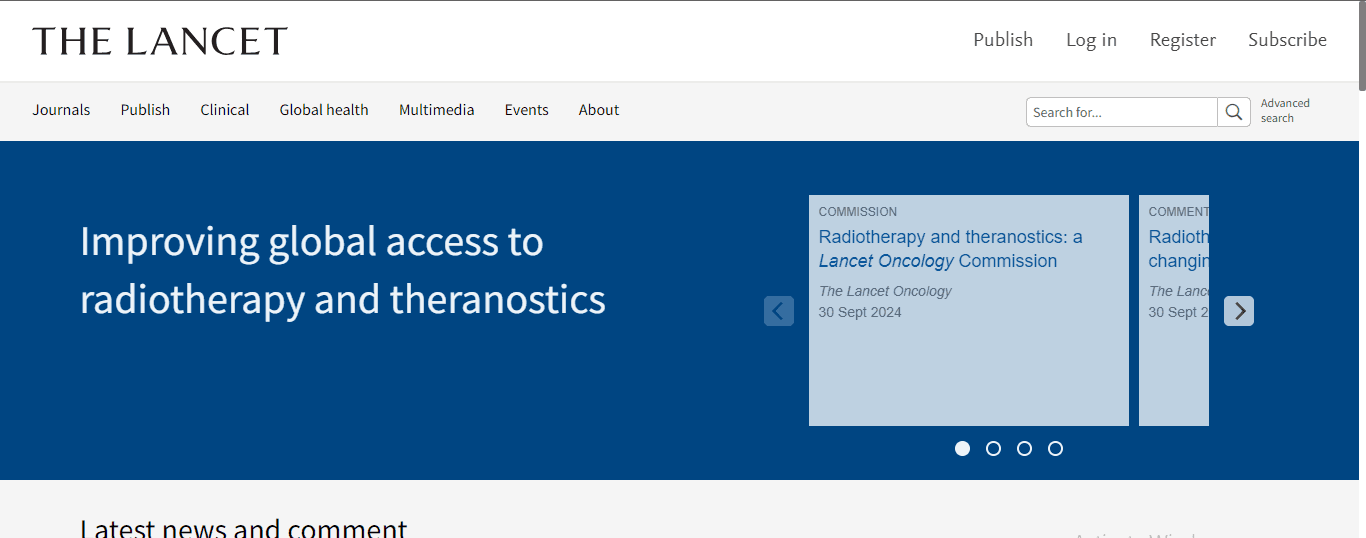
The Lancet is among the world's oldest and most respected medical journals. This peer-reviewed publication focuses on research on clinical and public health topics. The Lancet is crucial for researchers in the medical and health fields. It provides cutting-edge research findings and critical reviews of health practices. Studies published in The Lancet can help illuminate how health impacts learning, educational attainment, and performance.
4. Nature: Get Insights From Across the Scientific Spectrum

Nature is a multidisciplinary science journal that publishes significant advancements across various scientific disciplines, including biology, chemistry, and physics. This well-respected journal is valuable for researchers seeking groundbreaking studies and reviews pushing scientific knowledge's boundaries. With research published in Nature, you can better understand how environmental, biological, and chemical factors impact education and learning.
5. Harvard Business Review: Explore the Business of Education
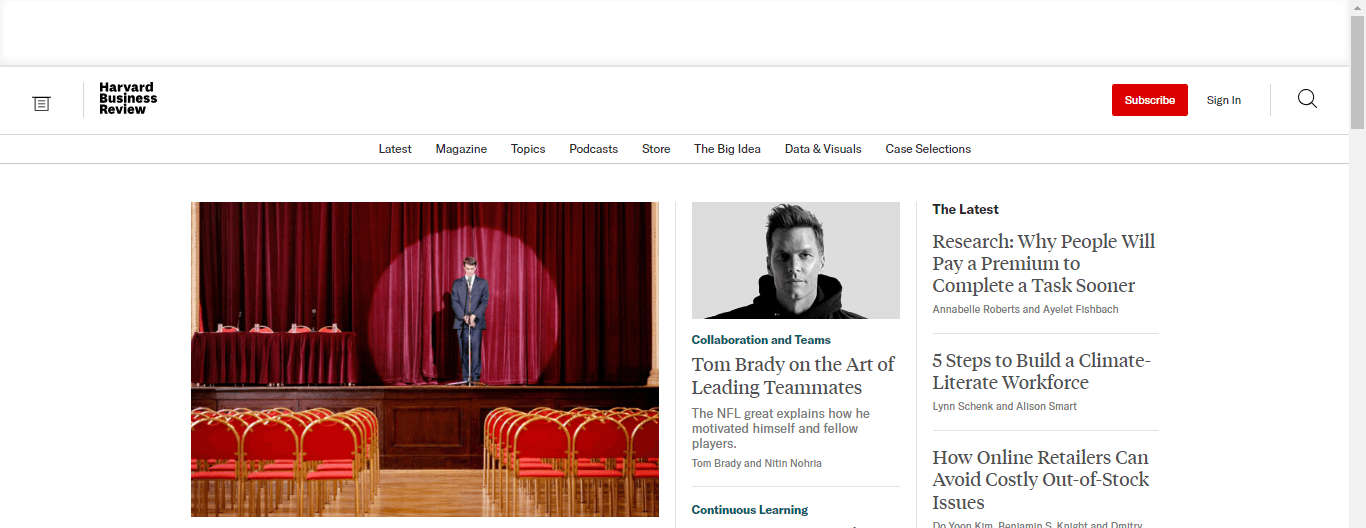
Harvard Business Review is a prestigious business magazine that offers insights and research on management practices, organizational behavior, and industry trends. This publication is ideal for scholars and practitioners interested in business management, leadership, and innovative business strategies. The research published in HBR can help you better understand the educational sector from a business perspective, particularly how to improve educational outcomes and performance.
6. Journal of Applied Psychology: Understand Workplace Learning and Performance
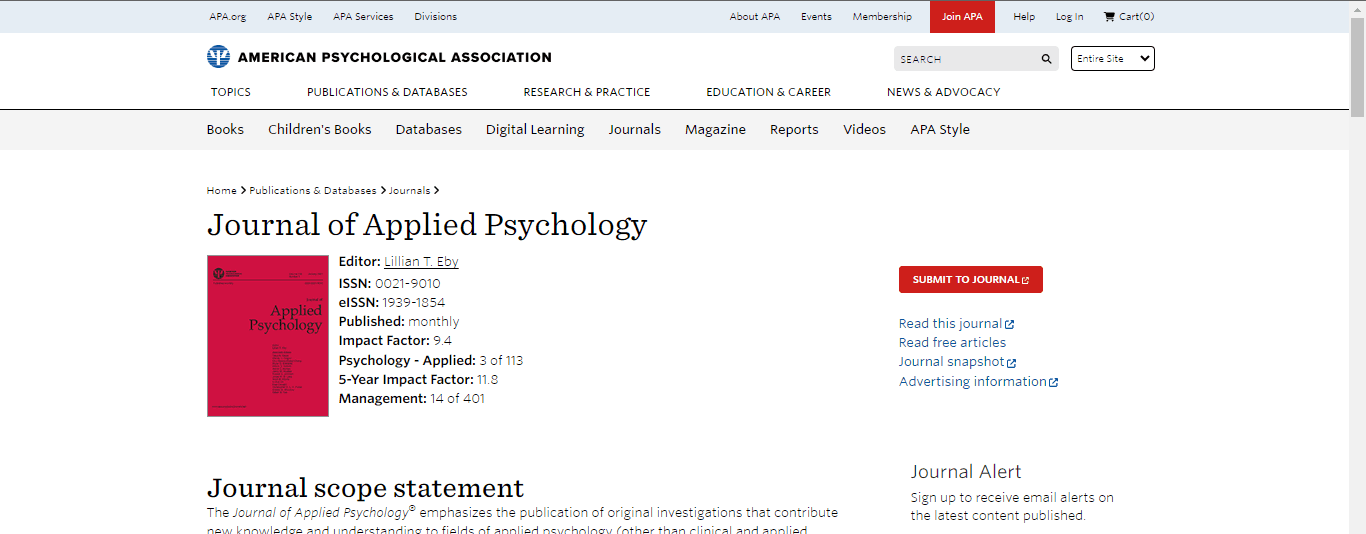
The Journal of Applied Psychology publishes original research in applied psychology, focusing on applying psychological principles in real-world settings. This journal is handy for those studying workplace psychology, organizational behavior, and employee performance. Research published in the Journal of Applied Psychology can illuminate factors affecting learning and performance in the workplace, including how to improve onboarding processes and employee training.
7. PLOS ONE: Find Interdisciplinary Research to Support Your Study
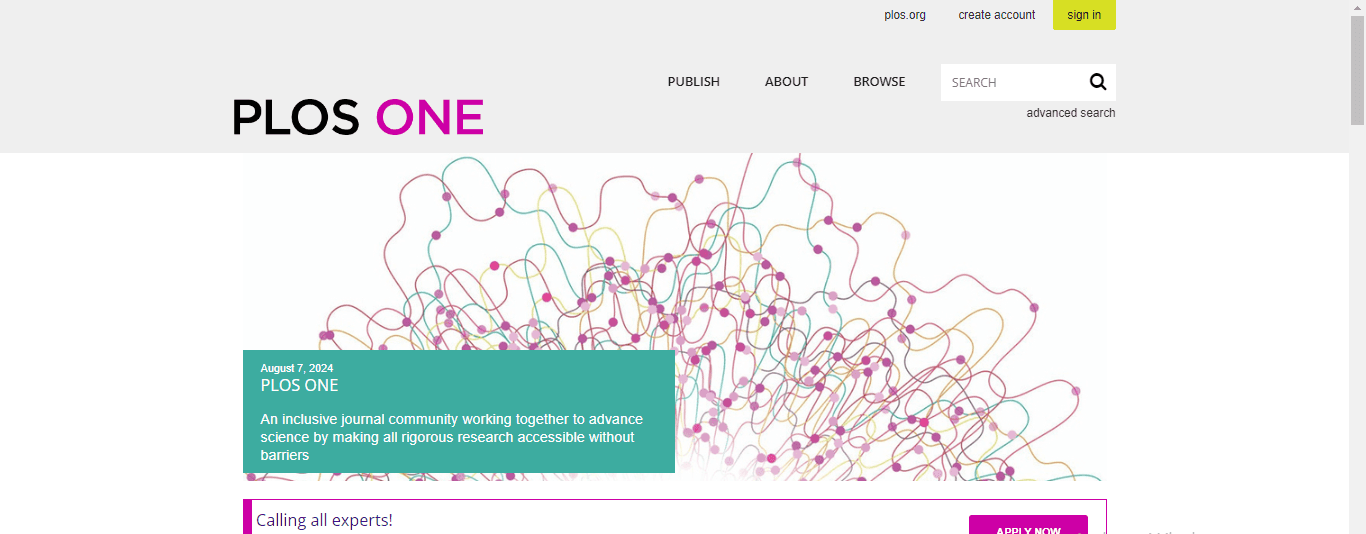
PLOS ONE is an open-access journal that publishes research across all scientific disciplines, emphasizing rigorous research and reproducibility. Because of its broad scope, PLOS ONE is accessible to a wide audience, making it suitable for interdisciplinary research covering various scientific topics. You may find research in this journal that supports your study on education and learning or provides insight into unique areas of inquiry.
8. Review of Educational Research: Synthesize Existing Research for Your Literature Review
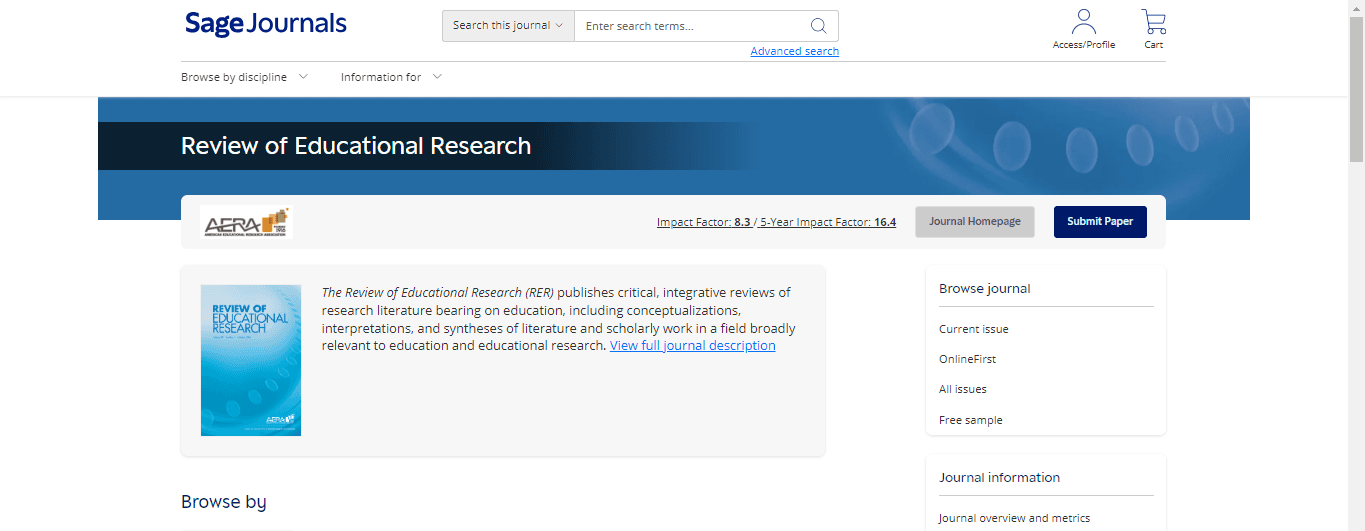
The Review of Educational Research publishes comprehensive reviews of literature related to education, focusing on educational practices and policies. This journal is essential for researchers interested in synthesizing existing educational research and identifying areas for future study. If you're surveying educational outcomes or learning processes, articles in this journal can help you build a solid foundation for your research.
9. Journal of Marketing Research: Understand the Marketing of Education
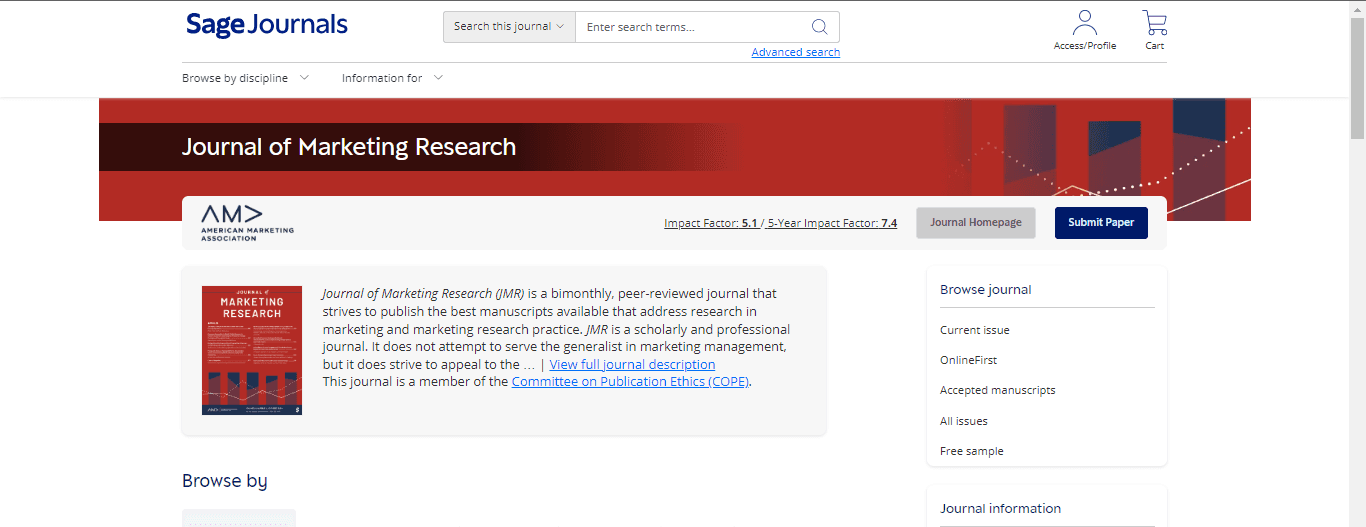
The Journal of Marketing Research focuses on the methodologies and findings related to marketing research, consumer behavior, and advertising effectiveness. This journal is valuable for scholars and practitioners looking to enhance their understanding of marketing strategies and consumer insights. Research published in the Journal of Marketing Research can help you better understand education marketing, including how to improve educational outcomes and performance.
10. International Journal of Environmental Research and Public Health: Explore the Relationship Between Health, Environment, and Education
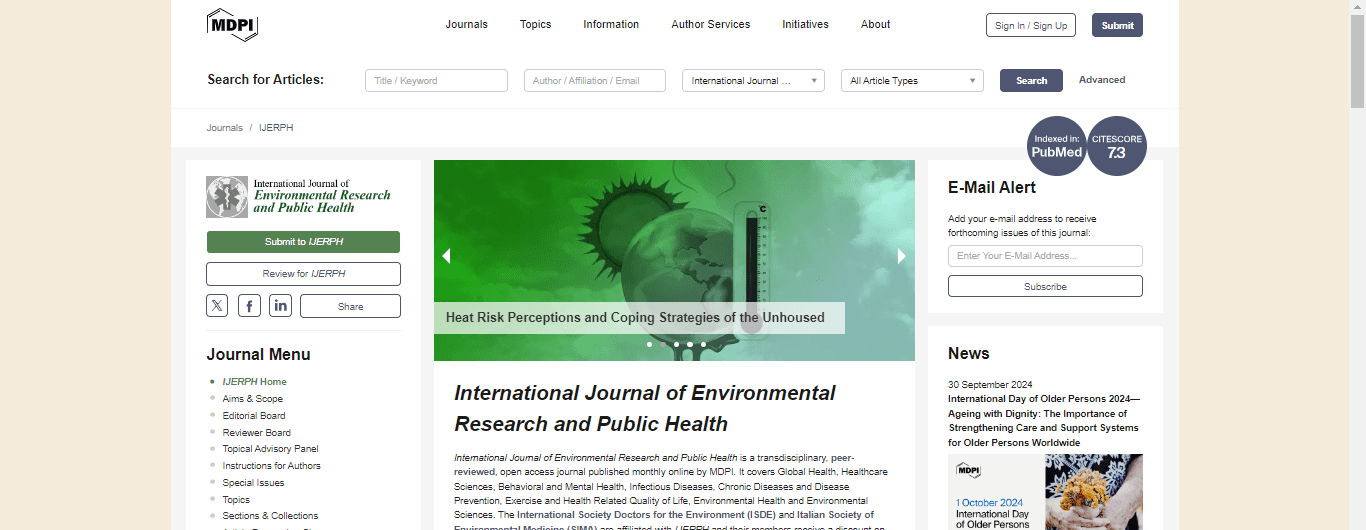
The International Journal of Environmental Research and Public Health publishes research on public health and environmental issues, focusing on promoting health and preventing disease. This journal is crucial for public health, environmental science, and policy development researchers. It provides insights into health-related challenges that can impact educational processes and outcomes. Studies published in this journal can help illuminate how environmental factors impact education and learning.
11. Clinical Psychology Review: Understand Mental Health Issues Affecting Education
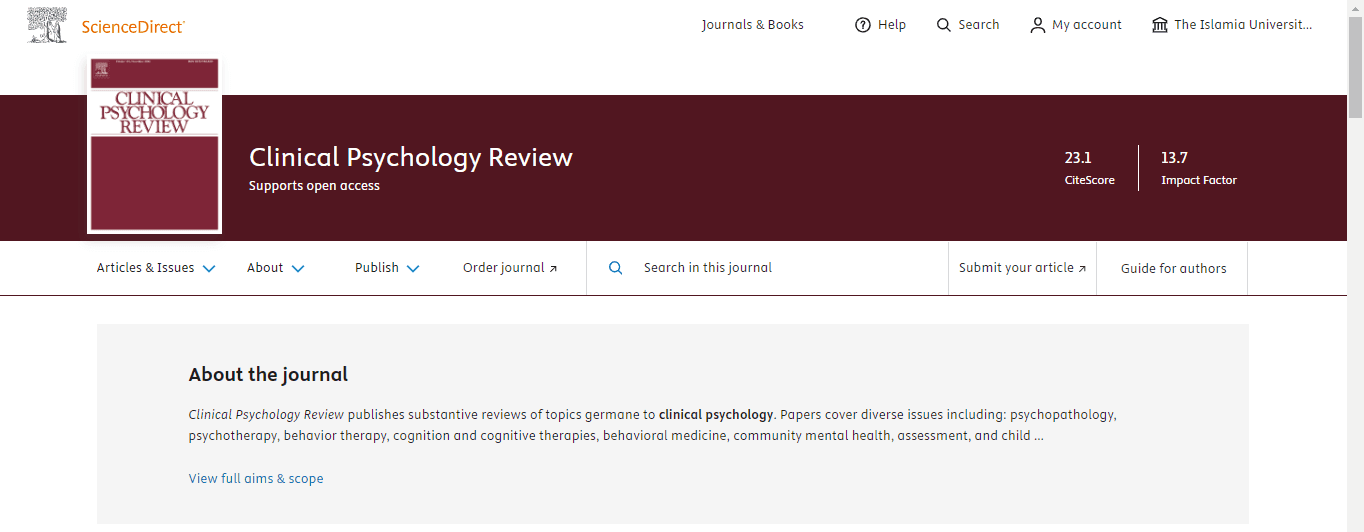
The Clinical Psychology Review publishes comprehensive reviews and theoretical articles in clinical psychology, focusing on psychological disorders and treatment methodologies. This journal is essential for researchers studying mental health issues, treatment efficacy, and psychological assessments. Research published in the Clinical Psychology Review can help you understand how psychological problems affect learning and performance and inform interventions to improve educational outcomes.
12. The New England Journal of Medicine: Get the Latest Findings in Health and Medicine
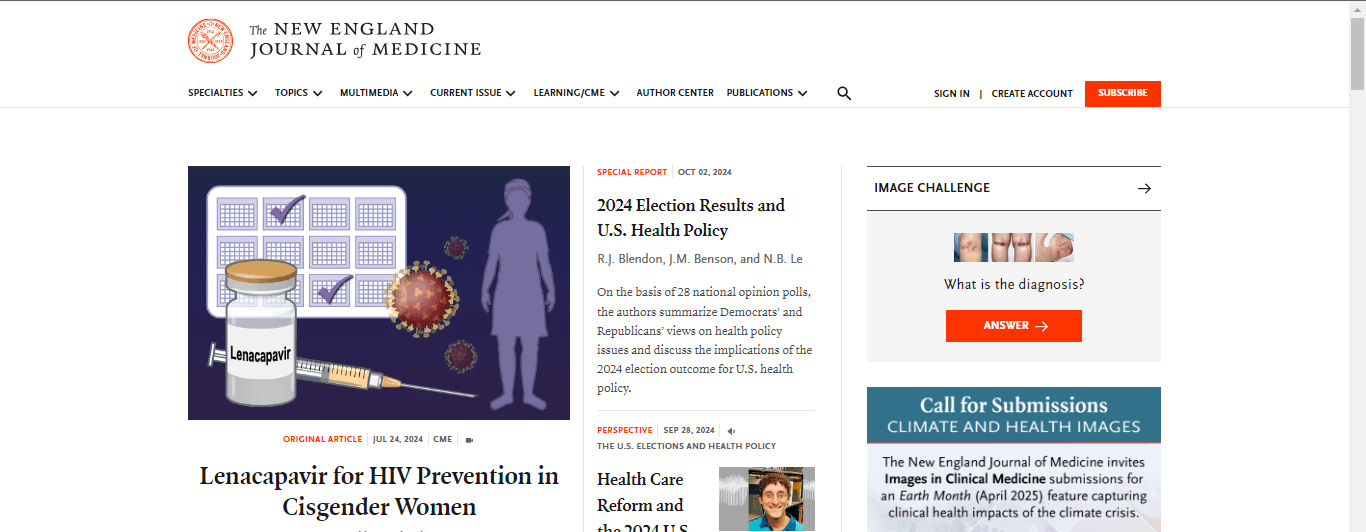
The New England Journal of Medicine is a premier medical journal that publishes original research and reviews articles that impact clinical practice and medical policy. This journal is essential for medical professionals and researchers seeking the latest findings and discussions on health and medicine. Studies published in the New England Journal of Medicine can help illuminate how health impacts education and learning, particularly interventions to improve physical and mental health.
13. Social Science Research: Find Methodological Guidance for Your Study
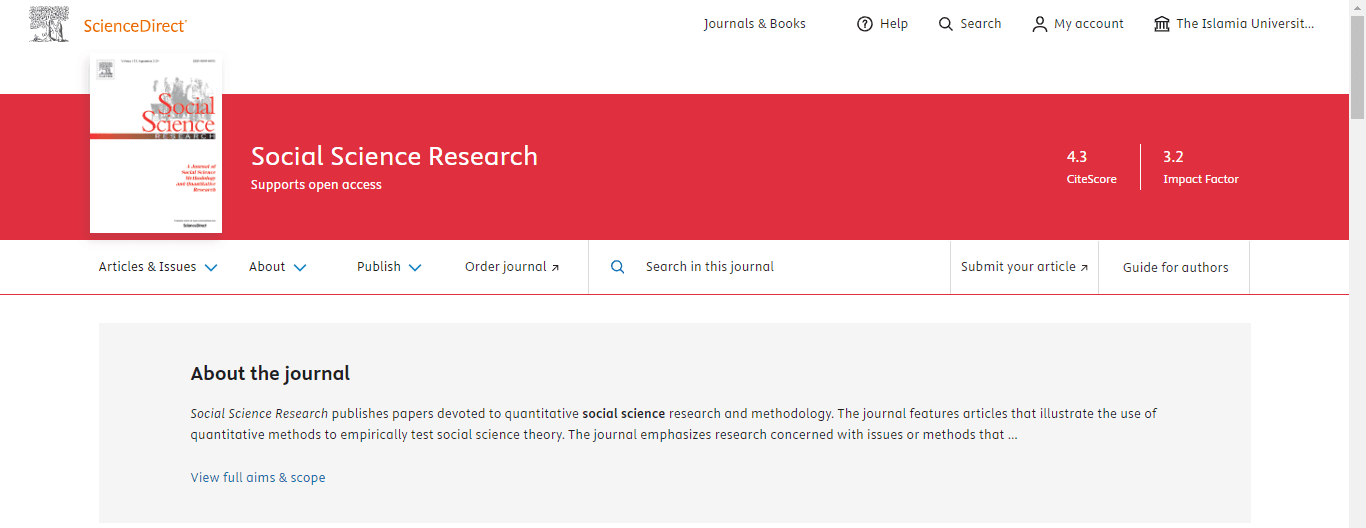
Social Science Research features articles on social science research methodologies and empirical studies across various social disciplines. This journal is valuable for researchers conducting social science research and looking for methodological guidance and empirical findings. If your study involves education, learning, or performance, articles in Social Science Research can help inform your research methods and provide insight into social factors that may affect your study.
14. Journal of Business Research: Explore the Business of Education
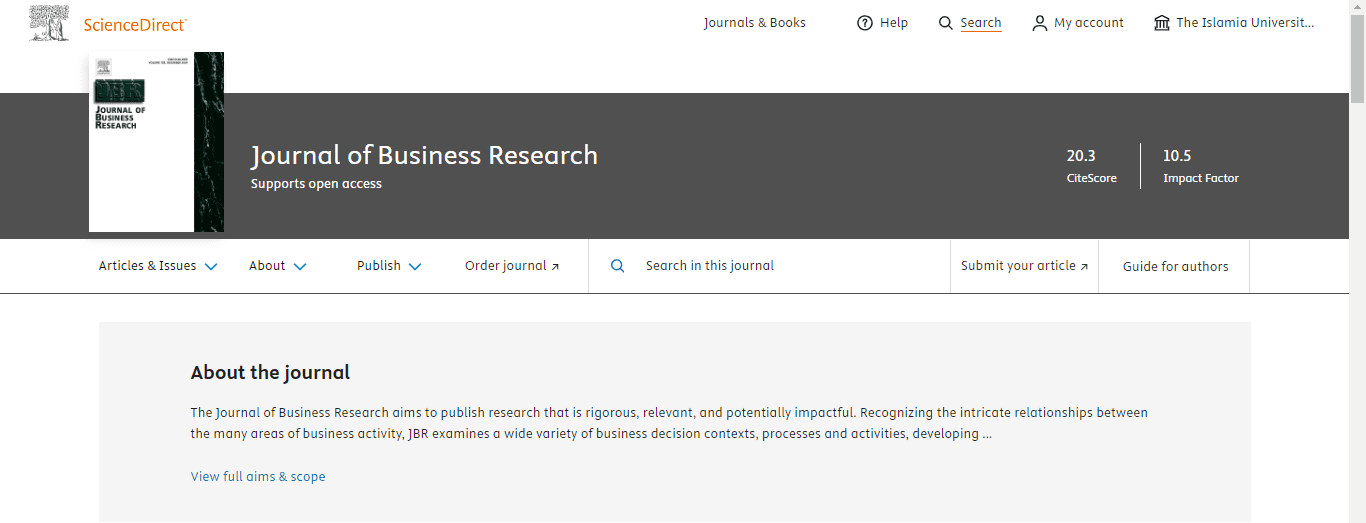
The Journal of Business Research discusses research on business and management practices, providing insights into consumer behavior, marketing, and corporate strategies. This journal is suitable for scholars and business practitioners to stay informed about the latest trends and business research. Research published in the Journal of Business Research can help you understand the educational sector from a business perspective, particularly how to improve educational outcomes and performance.
15. Psychological Bulletin: Get the Latest Findings in Psychology
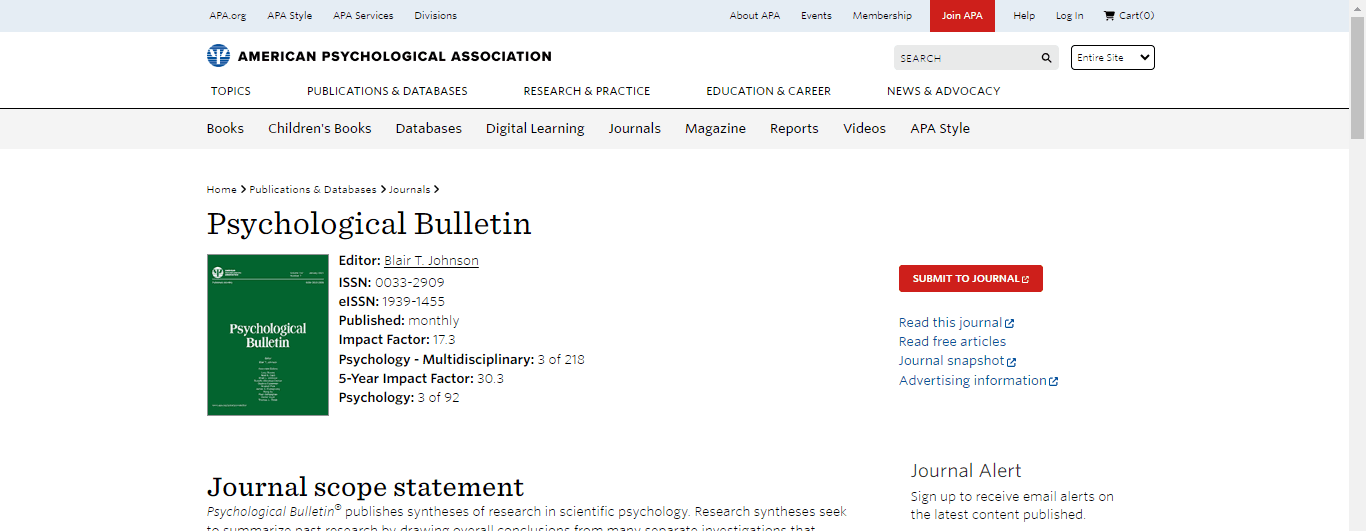
The Psychological Bulletin publishes comprehensive reviews of psychological research, theories, and methodologies. This journal is essential for researchers in psychology looking to synthesize findings and understand the broader implications of psychological research. Studies published in the Psychological Bulletin can help you better understand how psychological factors affect learning and performance and inform interventions to improve educational outcomes.
Related Reading
• Best AI Tool For Research
• Reference Finder
• Best AI For Research
• How to Cite AI
• AI For Literature Review
• Websites Like Google Scholar
• AI That Cites Sources
• Best Academic Search Engines
• Academic Research Software
• How To Use Chat GPT For Research
• Best Research Tools For Students
How to Utilize Jotbot for Finding Scholarly Sources

Step 1: Creating an Account and Setting Up Jotbot
To begin, head to the Jotbot website and create an account. You can log in using your Google account for quick access. Once inside, familiarize yourself with the dashboard and available features.
Step 2: Inputting Research Keywords
Once logged in, navigate to the source finder tool. In the search bar, enter relevant keywords related to your research topic. Use specific phrases or terms to narrow down results effectively.
Step 3: Navigating the Source Finder
Explore the results generated by Jotbot. The source finder pulls scholarly articles, journals, and other credible materials from various databases. Use filters to refine your search based on publication date, relevance, or source type (e.g., journal article, book).
Step 4: Generating and Organizing Citation Lists
After selecting relevant sources, Jotbot allows you to generate citations in your preferred format (APA, MLA, Chicago, etc.). You can organize these citations into a bibliography or reference list directly within Jotbot, making it easy to integrate into your literature review.
Step 5: Using AI Note-Taking for Enhanced Research
Utilize Jotbot’s AI note-taking feature to capture important points from each source. This helps streamline the writing process by ensuring you have quick access to key information. Create annotated notes to summarize each source's contributions and relevance to your research.
Enhancing Research Efficiency with Jotbot
Maximizing Features
To further enhance your research experience, consider using the video summarization feature to gather insights from educational videos related to your topic. Use the AI essay writer to draft sections of your literature review based on the notes and sources you have compiled, saving time and effort.
Integration with Writing Platforms
Jotbot’s features integrate smoothly with common writing platforms, allowing you to export your citations and notes directly into Google Docs or Microsoft Word. This integration facilitates a smoother workflow, ensuring your research and writing processes are cohesive.
Write more brilliantly, not harder, with Jotbot's AI writing assistant. Start finding sources free with Jotbot's source finder today — sign in with Google and get started in seconds.
Best Practices for Compiling a List of Scholarly Sources

Ensure Source Credibility and Relevance
When searching for sources for your academic paper, verifying that they are credible and relevant to your research is essential. You can do so by cross-referencing the information in a scholarly source, staying updated on current research, and assessing each source based on your research questions.
Cross-Reference Sources
Always cross-reference information found in scholarly sources. Use multiple reputable sources to verify claims and data, ensuring the information is accurate and well-supported. Note how different authors address similar topics to identify patterns, agreements, or disagreements within the literature.
Stay Updated on Current Research
Regularly check for the latest publications in your field. Subscribe to relevant academic journals or use platforms like Google Scholar to receive alerts on new articles that match your research interests. Current research often presents new insights or challenges to established theories, making it vital to include recent sources in your literature review.
Assess Relevance to Research Questions
Evaluate each source based on its relevance to your research questions and objectives. A source that does not directly contribute to answering your questions should be excluded from your list. Use a matrix or spreadsheet to map how each source relates to your key themes or research inquiries, allowing for a more organized approach.
Document Sources Effectively
Keeping your source list organized while you work is crucial. Doing so will help you quickly find the information you need as you write and ensure you meet academic standards for proper citations. You can maintain clear documentation, create annotated bibliographies, or both.
Maintain Clear Documentation
Create a well-organized reference list or bibliography as you compile sources. Include full citation details for each source, making it easier to cite them in your literature review. Use Jotbot’s citation generation features to ensure consistency in formatting according to the required citation style.
Annotated Bibliographies
Consider creating an annotated bibliography that summarizes each source's key points and relevance to your research. This practice helps you retain critical information for later use. Write concise notes reflecting the source's contributions, methodology, findings, and how they relate to your research.
Leverage Technology for Source Management
Finding, organizing, and documenting sources can feel overwhelming with the information available today. Luckily, technology can help. Use citation management tools, integrate them with Jotbot, and regularly back up your work.
Use Citation Management Tools
Explore citation management software (e.g., Zotero, EndNote, Mendeley) to organize and store your sources. These tools can help automate citation formatting and group sources by categories or themes. Integrate Jotbot with your chosen citation management tool to streamline the import and export of citations and notes.
Regular Backups
Regularly back up your compiled sources and notes on a cloud service or external storage. This practice safeguards your work against potential data loss. Ensure that your backup methods are reliable and that you can access your sources from multiple devices or locations.
Evaluate and Revise Your Source List
Your source list is a living document. As you continue your research and writing, it is essential to evaluate your list periodically and make any necessary revisions. This practice will help ensure your literature review is comprehensive and up to date.
Review Your List Periodically
Schedule regular reviews of your source list to ensure it remains relevant and comprehensive. Remove outdated or less credible sources that may not contribute meaningfully to your research. After gathering a substantial list of sources, evaluate their overall contribution to your literature review. Ensure that you have a balanced representation of different perspectives and findings.
Seek Feedback
Consider seeking feedback from peers, mentors, or advisors on your compiled list of sources. They provide insights or suggest additional sources that you may have overlooked. Engaging with others can also help refine your understanding of the topic and identify gaps in your literature review.
Common Pitfalls and How to Avoid Them

Taming the Information Beast
The vast amount of information available online and in academic databases can be overwhelming. Researchers may find it challenging to sift through numerous articles, journals, and studies, leading to confusion and frustration.
Accessing Academic Materials: The Struggle Is Real
Some scholarly sources may need to catch up to paywalls or require specific institutional access, making it challenging for researchers to obtain necessary materials. Additionally, navigating various databases can be time-consuming and complex.
Bias in Source Selection: Don’t Go Down That Rabbit Hole
Researchers may unintentionally lean towards familiar sources or those that confirm their existing beliefs, which can result in a lack of diversity in their literature review.
Solutions: Use Jotbot to Filter and Prioritize Sources
Jotbot's source finder feature can help researchers filter sources based on relevance and credibility. Users can quickly identify high-quality scholarly articles that align with their research questions by entering specific keywords and criteria. Jotbot can also categorize sources by themes or topics, making it easier to prioritize which sources to focus on first. This organized approach helps mitigate the feeling of being overwhelmed by information.
Accessing Institutional Resources
Encourage researchers to utilize their institution's library resources, often providing access to subscription-based journals and databases. Jotbot can integrate with these databases to streamline access to relevant materials. Consider using interlibrary loans or reaching out to authors directly to request copies of articles that are difficult to access.
The Importance of Combining AI Capabilities with Human Insight
While AI tools like Jotbot can significantly enhance the efficiency of source compilation, researchers must apply their judgment when evaluating sources. Relying solely on AI may lead to overlooking nuanced information or context that requires human interpretation. Human judgment is essential in assessing the credibility, relevance, and quality of the sources identified by AI. Researchers should ask critical questions about the authorship, publication venue, and potential biases present in the materials.
Encouragement for Critical Evaluation
Researchers should take the time to read abstracts, introductions, and conclusions of the articles recommended by Jotbot. This practice helps them understand each source's main arguments and relevance to their research questions. Additionally, it is beneficial to cross-reference findings from multiple sources to confirm accuracy and gather diverse perspectives. This process strengthens the literature review and fosters a more comprehensive understanding of the topic.
Write Smarter With Jotbot's Source Finder — Start Writing for Free Today
In the past, writing essays meant spending countless hours researching, organizing, and drafting your paper. Jotbot changes that, making the entire process faster and easier. With Jotbot, you can find sources for your paper, take notes, and organize your thoughts before writing an essay quickly and more efficiently. Jotbot even has an AI tool that can write your essay for you!
Related Reading
• How to Find Scholarly Sources
• Academic Sources Examples
• Scholarly Sources Examples
• Sourcely
• AI Research Tools
• Elicit AI
• Scisummary
• Scholarcy AI
• Consensus AI Tool
• Mendeley Alternatives
• Cite This For Me Alternative
• Examples of Peer Reviewed Sources
• How to Cite a Book
• How to Cite an Article
• How to Cite
• How to Cite a PDF
• How to Cite Multiple Authors MLA
•How to Cite a Website in Text
• How to Cite a Lecture
• How to Cite ChatGPT
Write more, better, faster.
Your personal AI document assistant












